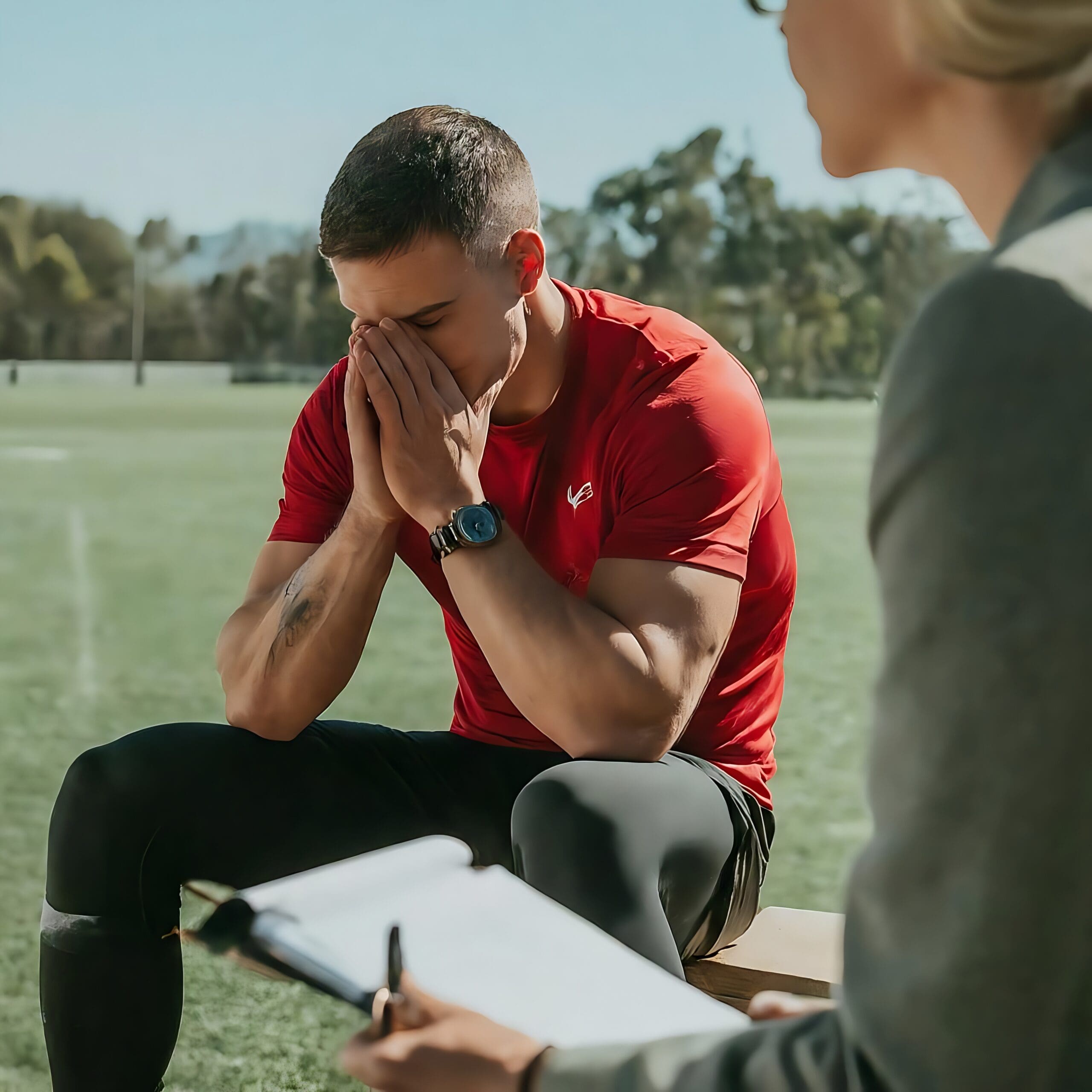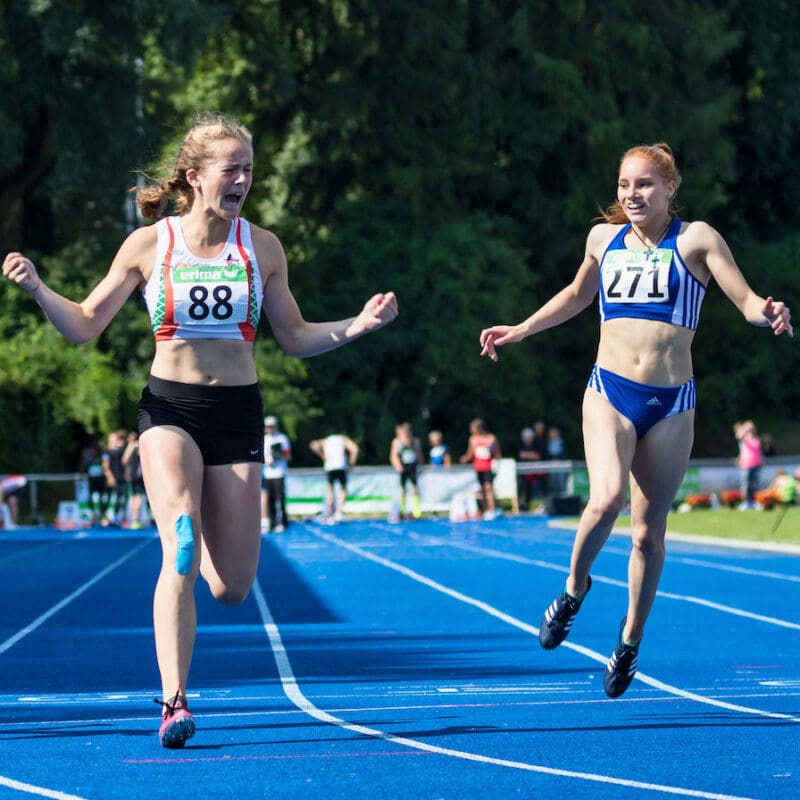How to become a Sports Psychologist
Everything you need to know about becoming a Sports Psychologist in 2025
Are you passionate about sports and fascinated by the human mind? If so, a career as a sports psychologist might be the perfect fit for you. This dynamic field combines the thrill of athletics with the intricacies of psychology, offering a unique opportunity to make a significant impact on athletes’ lives. As a sports psychologist, you’ll work closely with individuals and teams to enhance their performance, tackle mental hurdles, and promote overall well-being. From helping elite athletes overcome anxiety before major competitions to assisting young players in building confidence, your role will be both challenging and rewarding.
In this career guide, we will delve into the essential steps required to become a sports psychologist – from educational requirements and necessary skills to practical experience and professional development. Whether you’re just starting out or considering a career change, discover how you can turn your passion for sports psychology into a fulfilling profession that makes a real difference in the world of sport.
In this Sports Psychologist career guide
What does a Sports Psychologist do?
A sports psychologist plays a pivotal role in the success and well-being of athletes, offering a unique blend of psychological expertise and an understanding of the sporting world. Their primary focus is on enhancing performance by addressing mental barriers that athletes often face. Whether it’s dealing with performance anxiety, recovering from injury, or maintaining motivation during training, a sports psychologist provides tailored strategies to help athletes overcome these challenges.
Moreover, sports psychologists work on developing mental resilience and focus, crucial skills for any athlete aiming to excel in their discipline. They employ techniques such as visualisation, goal-setting, and relaxation methods to ensure that athletes are mentally prepared for competition. By fostering a positive mindset and teaching effective coping mechanisms, they enable athletes to perform at their best under pressure.
In addition to working directly with individual athletes or teams, sports psychologists also collaborate with coaches and trainers to create an environment conducive to optimal performance. This holistic approach ensures that all aspects of an athlete’s mental health are considered alongside their physical training regime.
In essence, a sports psychologist is not just about improving athletic performance; they are integral in promoting overall well-being and ensuring long-term success both on and off the field.
Responsibilities of a Sports Psychologist
In the world of sports, the mental prowess of athletes is just as crucial as their physical abilities. This is where sports psychologists come into play. Their role is multifaceted and essential for helping athletes achieve peak performance while maintaining mental well-being. Here are some key responsibilities of a sports psychologist:
Enhancing Performance: Sports psychologists work with athletes to develop strategies that improve focus, motivation, and confidence, helping them perform at their best during competitions.
Managing Stress and Anxiety: They provide tools and techniques to manage stress and anxiety, which can significantly impact an athlete’s performance if not addressed properly.
Rehabilitation Support: During injury recovery, sports psychologists offer psychological support to help athletes cope with the emotional challenges that accompany physical healing.
Team Building: By fostering effective communication and cohesion among team members, they contribute to a positive team dynamic that can lead to better overall performance.
Career Transition Guidance: Whether it’s moving between teams or retiring from professional sport altogether, sports psychologists assist athletes in navigating these significant life changes smoothly.
Goal Setting and Motivation: They help athletes set realistic goals and maintain motivation throughout their training regimes by developing personalised mental strategies.
Through these responsibilities, sports psychologists play an indispensable role in nurturing both the mindsets and careers of athletes across all levels of competition.

Skills needed to become a Sports Psychologist
Becoming a sports psychologist requires a unique blend of skills that cater to both the mental and physical aspects of athletic performance. If you’re considering this rewarding career path, here are some essential skills you’ll need to develop:
Strong Communication Skills: Effective communication is crucial when working with athletes, coaches, and teams. You must be able to convey complex psychological concepts in an easily understandable manner.
Empathy and Active Listening: Understanding an athlete’s perspective is key. Empathy allows you to connect on a deeper level, while active listening ensures you fully comprehend their concerns and challenges.
Analytical Thinking: As a sports psychologist, you’ll need to assess various factors affecting an athlete’s performance. Analytical thinking helps in identifying patterns and developing tailored strategies for improvement.
Problem-Solving Abilities: Athletes often face mental roadblocks that require innovative solutions. Your ability to think creatively and solve problems will be instrumental in helping them overcome these hurdles.
Knowledge of Sport Science: A solid understanding of sport science principles is essential for integrating psychological strategies with physical training regimens effectively.
Stress Management Techniques: Teaching athletes how to manage stress is vital for peak performance under pressure. Familiarity with stress management techniques will allow you to guide them through high-stakes situations confidently.
Patience and Persistence: Progress can be gradual, requiring patience as athletes work through psychological barriers over time.
By honing these skills, you’ll be well-equipped to support athletes in achieving their full potential both mentally and physically, making your role as a sports psychologist indispensable in the world of competitive sports.
What qualifications do Sports Psychologist need?
To pursue a career as a sports psychologist in the UK, one must embark on a journey that combines both academic excellence and practical experience. The first step is obtaining a degree in psychology, accredited by the British Psychological Society (BPS). This foundational qualification ensures that aspiring sports psychologists have a solid understanding of psychological principles.
Following this, it is essential to complete a BPS-accredited master’s programme specifically in sport and exercise psychology. This specialised training delves into the unique psychological challenges faced by athletes and equips students with strategies to enhance performance and well-being.
Beyond academic qualifications, practical experience is crucial. Aspiring sports psychologists must undertake supervised practice through the BPS’s Qualification in Sport and Exercise Psychology (Stage 2), which typically takes around two years. This hands-on experience allows individuals to apply theoretical knowledge in real-world settings under the guidance of experienced professionals.
Finally, registration with the Health and Care Professions Council (HCPC) is required to legally practise as a sports psychologist in the UK. This registration ensures adherence to professional standards and ethical guidelines, providing assurance to clients of their competence.
In summary, becoming a sports psychologist requires dedication to extensive education and training. However, for those passionate about helping athletes achieve their potential, it offers an incredibly rewarding career path.
Work environment and hours
A career as a sports psychologist offers a dynamic and rewarding work environment that is both challenging and fulfilling. Unlike the traditional 9-to-5 job, sports psychologists often find themselves working in diverse settings, from bustling sports arenas to serene therapy rooms. This variety not only keeps the job exciting but also allows professionals to engage with athletes in environments where they feel most comfortable.
The hours of a sports psychologist can be as varied as their work settings. While some may maintain regular office hours for consultations and therapy sessions, many are required to adapt to the schedules of athletes and teams. This flexibility might mean early mornings or late evenings, especially during competitive seasons when psychological support is crucial for peak performance.
Moreover, travelling is often part of the role, especially for those working with professional teams or elite athletes who compete internationally. This aspect adds an element of adventure and global exposure that few other professions offer.
Ultimately, the work environment and hours of a sports psychologist are tailored to meet the needs of their clients – athletes who rely on their expertise to enhance performance, manage stress, and overcome mental barriers. For those passionate about making a tangible difference in the world of sports while enjoying a non-conventional work schedule, this career path presents an ideal opportunity.

How much do Sports Psychologist’s earn?
When considering a career as a sports psychologist, it’s natural to be curious about the potential earnings in this field. Sports psychologists play a crucial role in enhancing athletic performance by addressing the mental and emotional aspects of sport. Their expertise is highly valued across various levels of athletics, from amateur clubs to professional leagues.
In the UK, the salary for sports psychologists can vary significantly based on experience, location, and the level of sport they are involved with. Entry-level positions might start around £20,000 to £25,000 per year. However, with more experience and specialised qualifications, salaries can rise substantially. Mid-career professionals often earn between £30,000 and £45,000 annually.
For those working with elite athletes or within high-profile sports organisations, earnings can exceed £60,000 or more. Additionally, some sports psychologists choose to work privately or offer consultancy services alongside their primary roles – this flexibility can lead to increased income opportunities.
Overall, while financial compensation is an important consideration when choosing this career path, many sports psychologists find immense satisfaction in helping athletes achieve their full potential both mentally and physically – a reward that often goes beyond monetary value.
Types of roles for Sports Psychologists
Sports psychologists play a crucial role in the world of athletics, offering their expertise in various capacities to enhance both individual and team performance. One prominent role is that of a performance consultant, where they work directly with athletes to develop mental strategies that bolster confidence, focus, and resilience. By employing techniques such as visualisation and goal-setting, sports psychologists help athletes maintain peak performance under pressure.
Another vital role is that of a team dynamics specialist. In this capacity, sports psychologists assess and improve the interpersonal relationships within a team. They facilitate communication workshops and conflict resolution sessions to ensure that team members work cohesively towards common goals. By fostering a positive team environment, they contribute significantly to overall success.
Additionally, sports psychologists often serve as rehabilitation counsellors for injured athletes. They provide essential support during recovery by addressing the psychological hurdles associated with injury setbacks. This involves helping athletes cope with frustration or anxiety related to their physical condition while maintaining motivation for rehabilitation efforts.
Beyond these roles, sports psychologists engage in research and education within academic settings or professional organisations. Their insights into human behaviour not only advance the field but also inform coaching practices worldwide.
In essence, the diverse roles undertaken by sports psychologists are indispensable in shaping well-rounded athletes who excel not just physically but mentally as well.

Professional Development and Career Paths
Embarking on a career as a sports psychologist offers a dynamic and fulfilling professional journey. As the demand for mental health support in sports continues to rise, so too do the opportunities for growth and development in this field. Whether you’re just starting out or seeking to advance your career, there are numerous pathways to explore.
To begin with, gaining relevant qualifications is paramount. A degree in psychology followed by specialised postgraduate training in sports psychology sets the foundation. However, true professional development extends beyond academic credentials. Engaging in continuous learning through workshops, seminars, and conferences keeps you abreast of the latest research and techniques.
Networking is another crucial component of career advancement. Building connections with coaches, athletes, and other professionals within the industry can open doors to collaborative opportunities that enhance your expertise and visibility.
Moreover, consider diversifying your experience by working across various levels of sport – from amateur teams to elite athletes – and different settings such as schools or private practice. This not only broadens your skill set but also enriches your understanding of diverse sporting environments.
In addition to direct client work, many sports psychologists find rewarding careers in academia or research roles where they contribute valuable insights into athlete performance and well-being.
Ultimately, a successful career in sports psychology hinges on a commitment to lifelong learning and adaptability. By embracing these principles, you can carve out a niche that not only advances your personal goals but also makes a significant impact on the sporting community at large.



